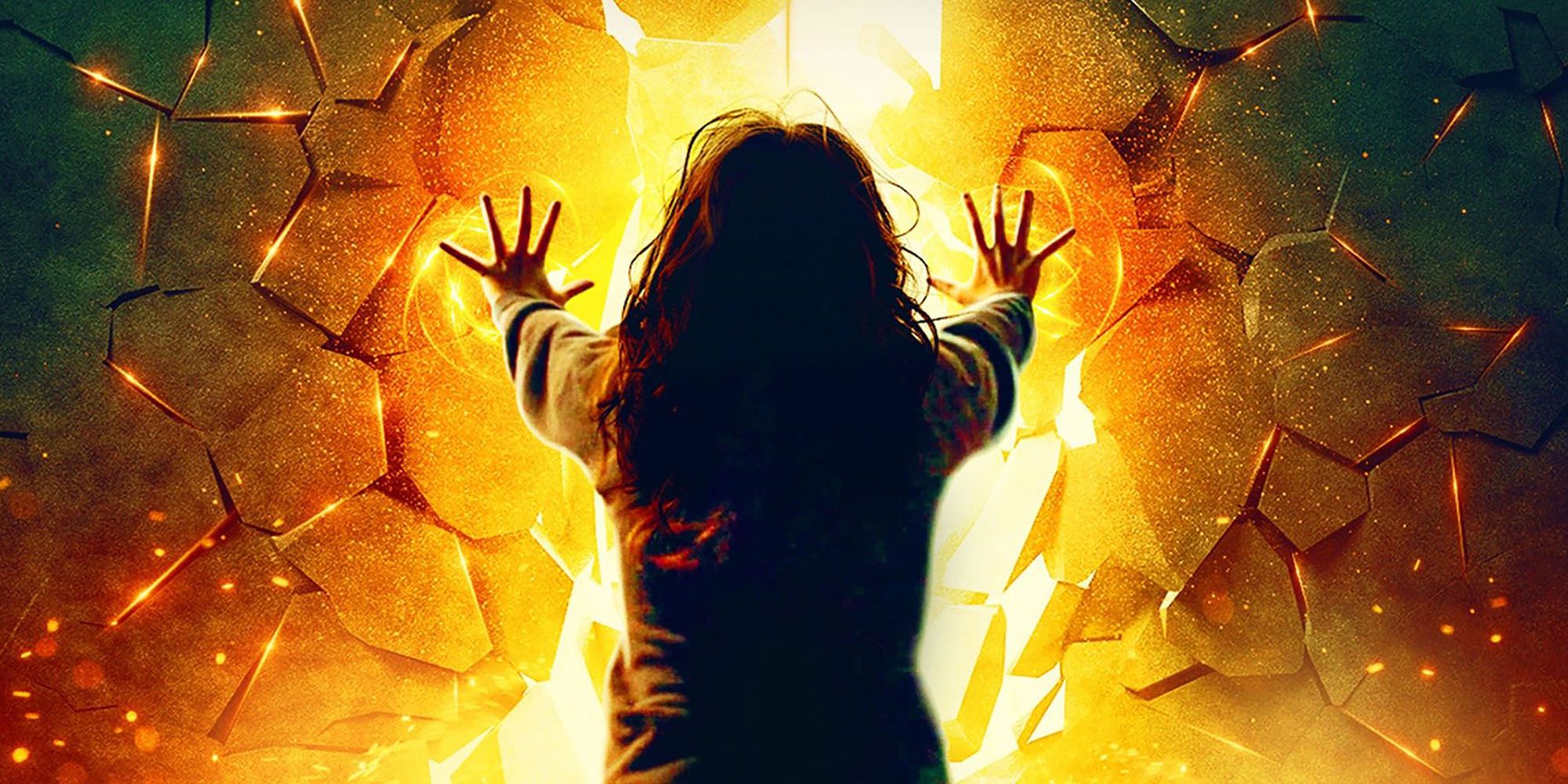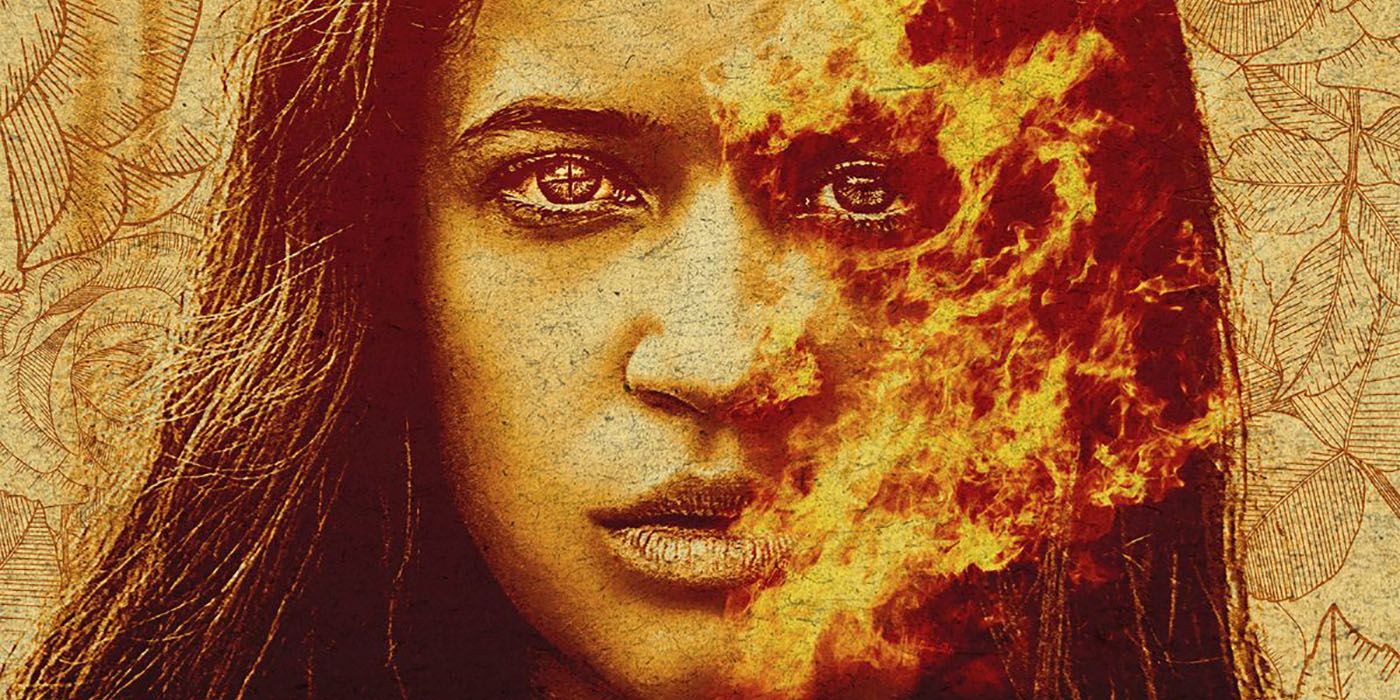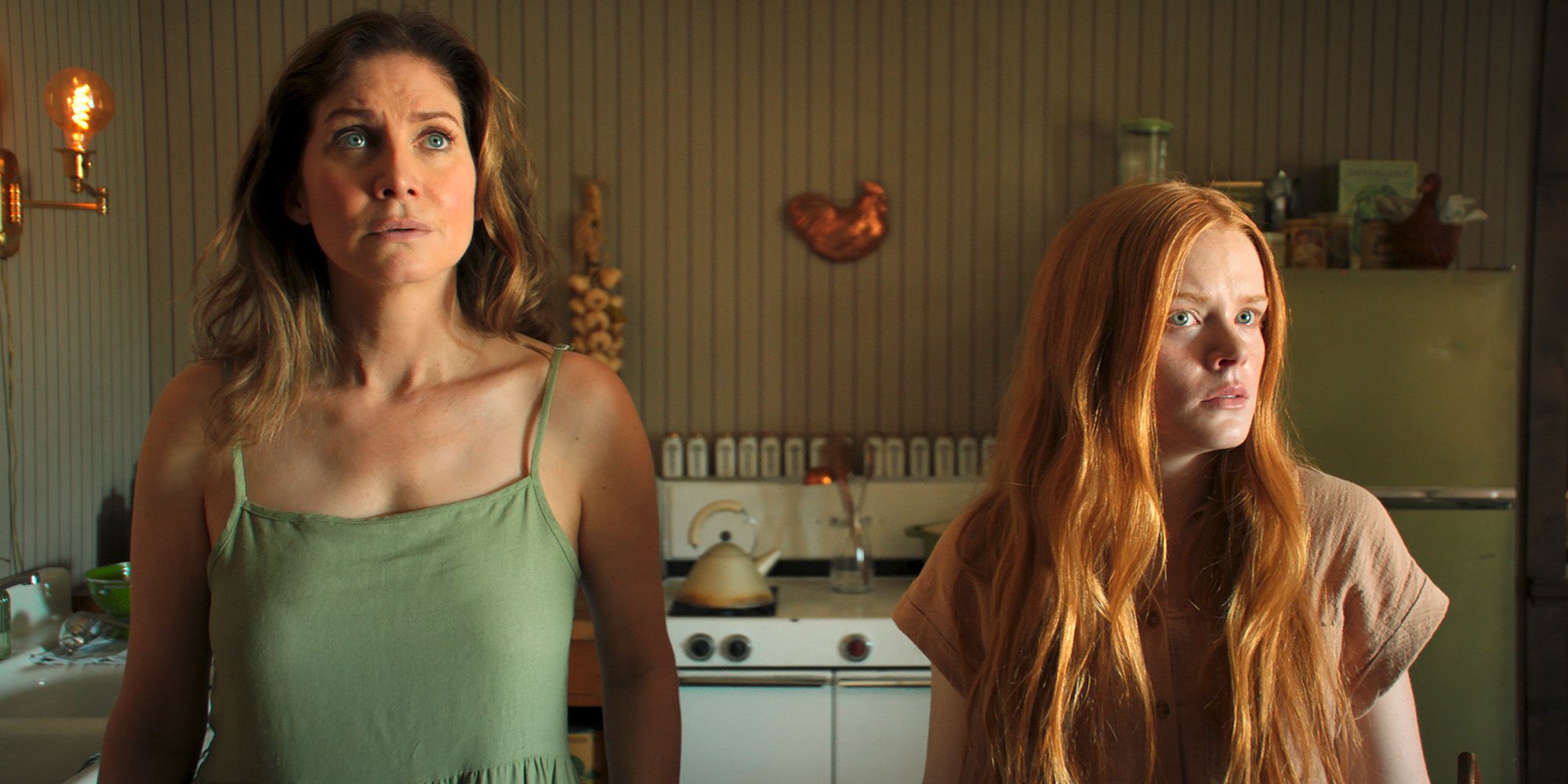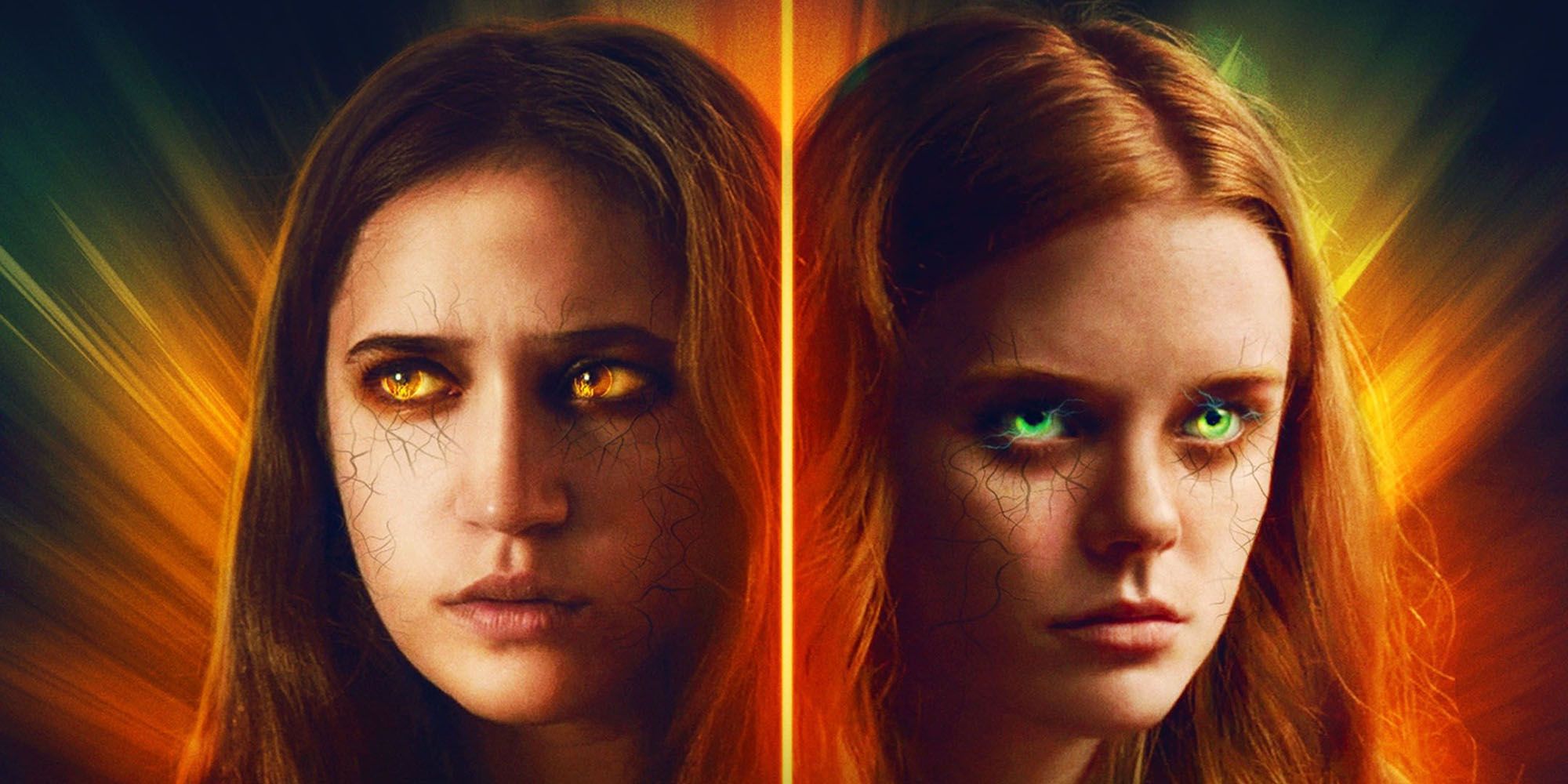SPOILER WARNING: This article contains spoilers for Witch Hunt, now available in theaters and on digital.
The Witch Hunt is on in writer-director Elle Callahan's fantasy thriller, which takes place in an alternate America where witchcraft is not only real, but persecuted under the fullest extent of the law. While witches and their families are oppressed across the country, the story centers around one family: Claire and her mother Martha, who helps smuggle witches across the Mexican border, where witchcraft laws aren't as strict. However, when two young witches named Fiona and Shae enter their home, everything in their lives will change forever.
Speaking to CBR, Callahan shared how her New England upbringing and the real-life circumstances behind the Salem Witch Trials inspired her latest film. She explained why it was necessary to move Witch Hunt away from New England, as well as why she decided to tie witchcraft to "feminine energy." She revealed how the actors breathed new life into the characters and what made this "a story that they really believe[d] in." She also expressed interest in revisiting this world again someday, broke down the film's emotional climax and more.
CBR: Tell me a little about where this idea came from. What inspired you to write and direct Witch Hunt?
Elle Callahan: Well, I had always wanted to do a film that involved witches or witchcraft in some way. I grew up in New England, so it was kind of really embedded in our folklore. Once I started doing research on the actual, real history of witchcraft, not just the bullet points they give us in school regarding the Salem Witch Trials, I was just fascinated by how normal it was 300-500 years ago to just accuse anyone of being witch, if they were different. Witch hunters were real, legitimate jobs that people could have.
It was so different than what I thought I knew, because I thought it was based in hysteria and things, but it wasn't. It was fact for people back then; it made logical sense. That was fascinating to me. So I thought if we just took that and put it in modern day in America, what would that look like? If women suddenly could do magic and have this power that men don't have, how would our country react? It kind of just fell out of me from there. I think a little bit of it was me working through my frustrations with our current time period, in regards to the life that women lead. So yeah, that's kind of how it came about.
The film picks up in New England, the site of the original Salem Witch Trials, before shifting closer to the Mexican border. How did the setting impact the direction of this story for you?
Well, I live in California now and I like to write and direct things that I feel close to. So originally, the script was set actually fully in New England. I just felt like it was too witchy stereotypical, and I wanted the movie to be about -- I wanted the themes of the movie to shine through and I thought, if I switched up the setting, then maybe you wouldn't get as pulled into the stereotypes of what you're used to a witch movie being like. So in order to try to better highlight that, I set it in the south, where I was living and still live. So that was my intention there.
As I was watching the film, I found myself drawing parallels between Witch Hunt's story and some current events we've lived through recently. How did that influence your approach to the story?
Well, I mean, when I was writing it, I didn't really intend to make a movie that was really saying anything. I try to just tell stories that I think I would want to watch. At that point, that's what I wanted to see and consume.
I think it was a little cathartic to work through a lot of the issues that I was having with our government and our country and our treatment of anyone that's considered other. So it just kind of pervaded into my writing. Then, the more that we focused on getting the project made, it became clear that it was really important to a lot of other people as well. Nothing unifies a cast and crew like a story that they really believe in.
In culture at large, we're having this discussion about how we, as a society, approach and understand gender as a construct that isn't necessarily tied to a binary. Since Witch Hunt draws a connection between magic and gender, how would you break down this link?
Well, I mean, historically, witchcraft is kind of the only power that women have been able to have that isn't tied to their relationship to a man. It's power that's not rooted in money or status or the ability to get an education. It's just kind of pure, feminine energy. I wanted to give the women in this story a type of power that men didn't have access to, and how society I think then would react to that.
When I spoke to Elizabeth Mitchell about the movie, she told me a little about how the two of you worked together to craft the characters. Tell me a little about how you worked with the cast to bring these characters to life.
Well, I think that the characters that I write are just a starting point. I love the actors to bring their own experiences and ideas and intentions to the characters that they're bringing to life. So what I'm bringing is just a baseline, and they kind of go from there.
Elizabeth brought so much calm control to Martha that I really loved because I think, in the representations of women we've had in the past in film, they are also often categorized as being very reactionary. Martha is very proactive and very calm and just strong. That was a version of a strong woman that I hadn't seen in a while, and I really enjoyed her take on it.
You know, Gideon [Adlon] and Abby [Cowen] and Echo [Campbell] all brought themselves to their roles as well, especially Gideon and Abby. They took Fiona and Claire's relationship and made it their own -- that strong, feminine bond that grows between girls, especially during that age. So yeah, I just provide the baseline and then they go from there. You know, it's a big group project. That's what films are to me. [laughs] It's like I start the story, and everyone else finishes telling it.
Elizabeth also mentioned that the emotional climax of the film, the scene where Martha says goodbye to her daughter Claire, was largely improvised due to a bat problem on location. What did filming this scene look like on your end?
That scene is so special to me. I mean, we did have to move our shooting schedule around because there were bats in our location. We had to move all the scenes outside for the day while we moved the bats out. So we had to jump into that scene.
As a director, it wasn't a situation that I really didn't like putting actors in a situation that they haven't prepped for, because you have a plan, you figure out -- I mean, being an actor is hard enough where you have to shoot out of order. Your character is all over the place, and then you have to track where they are in every scene, because you don't shoot it chronologically.
So already jumping to a new scene, especially the ending scene where you're having this climactic moment between a mother and daughter, with 30 minutes' notice is not the most ideal situation, but I think it really made the scene work. I mean, I think the most emotional conversations you have with people are spur of the moment, and what you really want to say just shines through.
So we had a script and we didn't really have that much time to prep, so we just kind of rolled and just went with it. Elizabeth just channeled Martha and I think the lines that made it into film weren't even the original written lines. We just kept rolling and figured it out as we went through that scene, which was really fun. It was very emotional, but it turned out really great. Also, it's a night scene, and we shot it during the day, so they're in a tent. They were real troopers about it. Pure professionals.
How did you settle on that ending? What made Thelma and Louise the perfect cinematic parallel?
I mean, I love when a movie ends and you immediately have an opinion about it. So I like to end my movies kind of on -- not cliffhangers, but just in ways that there could be a possibility for multiple differing interpretations. So that's usually always my intention.
With Thelma and Louise, that movie just kept popping up when I was writing the script, and it just started to weave its way through the story. That movie is about two really strong, empowered women and their friendship. It's one of the first movies I saw that two female characters just fully went for it the entire movie. I think their story and how they're being pursued mirrored a lot of what was going on in my script. So it just felt natural to do a little homage to it.
What made Agent Hawthorne the right villain for this piece?
Well, for me, I needed to create a villain that was the opposite of magic. Magic, to me, is chaos, good and bad. So I wrote an antagonist that was control. So everything that he's doing is logic and control based. Also, it was super important for me, whenever I write a villain -- and it was really important for Christian [Camargo] too, when he was playing him -- that the villain believes that they are the hero, because they need to make logical sense in their minds.
I feel like people in the real world, they don't do things to be bad. They're not acting evil to be evil; they're acting what they think of as good. So it was really important for me to create a villain that believed that he was doing the right thing. I think those are the ones that we are kind of like, "Okay, we see what he is doing is not -- I don't agree with him," and you have to think, "Why don't I agree with that?" and it kind of opens up more conversations.
What do you hope viewers take away from this project?
I hope, one, above all else, that they enjoy it, that they are a little spooked, and that they are a little thrilled, and that they also have some questions about the world that they live in -- not the world that we've set up in our film, but the world that they're living in, in reality, because I'm trying to craft a story that holds a mirror up to our reality and says, "Hey, this is a safe way to look at some bigger issues that we've got going on. We're gonna weave this through an enjoyable story, and hopefully, you might take a few things from it and think about some of the laws and situations that we have going on now in a new light."
Is this a world you'd like to explore more, perhaps in a sequel or a spinoff?
I would love to explore it more. I think, right now, I've said what I need to say, but I'd be open to it in the future. I mean, making a film is exhausting! [laughs] You need to kind of take some time off because it does pull you in and rule your world for three to four years.
But there's so many more opportunities here. I mean, I rewrote this script fully from the ground up three times. So there's been a lot of actually other stories that have been told in this world that just didn't make it to the final cut.
I'd love to explore different parts of the country, maybe different countries too, how they handle witchcraft. Because in this world, America is the strictest because their laws are the newest. So in other countries, witchcraft is more protected by being written into their laws that are leftover from hundreds and hundreds of years ago. America, since we were only founded 300 years ago, was able to enact stricter protocols because we got to start over. So yeah, I think it would be fun to maybe do a spin off or some kind of series because there's a lot to play with.
Witch Hunt is now available in theaters, On Demand and digital.




